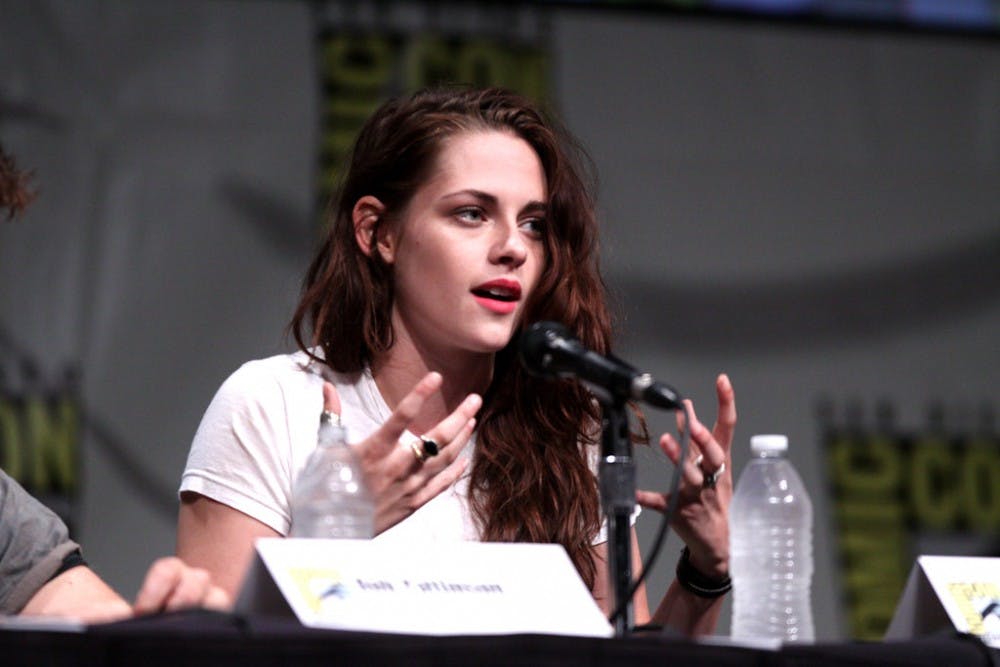Two weeks ago, Kristen Stewart of Twilight fame said that she was told to hide her sexuality if she wanted to get a role in a blockbuster superhero movie. To quote her: “I have fully been told, 'If you just like do yourself a favor, and don’t go out holding your girlfriend’s hand in public, you might get a Marvel movie.'" This comes on the distant heels of publicity about Avengers: Endgame, which made headlines for its alleged monumental step in the Marvel Cinematic Universe: its first gay character. This character is portrayed by the film’s director, Joe Russo, in a two–minute cameo where the unnamed “grieving man” mourns the loss of his (male) partner and discusses how he’s moved on after the life–changing snap of Infinity War.
Russo’s grieving man (listed as Gozie Agbo in the credits) comes as one in a series of so–called “gay firsts” in Disney content. Two years ago, Disney got buzz for having its first suggested gay character on screen—Lefou in Beauty and the Beast, who does nothing more than be in love with the villain, Gaston, for the entire runtime, then dance with another man during the final ballroom scene. Disney also got buzz last year for announcing they would feature their first “out gay character in film,” to be portrayed by Jack Whitehall in the upcoming film Jungle Cruise—though, of course, he doesn’t actually use the word “gay.” More recently, Disney had its first character to say the words, “I’m gay,” in its history: Cyrus in the television show Andi Mack. All of these, which have been written as major steps in the media, say nothing about how these gay characters are portrayed—only that they are portrayed, and that this, in itself, is a huge step.
These portrayals aren't necessarily bad—Cyrus’ has particular merits since he appears on on a children’s television show and can serve as a form of education—but they’re far from the nuanced depictions that they ought to be. Despite this, many (speaking their minds in the comments section) were outraged at Kristen Stewart’s comments, citing the acts of supposed gay liberation by Disney as evidence to prove a lack of homophobia in Hollywood. It seems ironic that Stewart got attacked for being out and public with her girlfriend and then got attacked for mentioning this prejudice—it has become an unspoken rule to gay actors in Hollywood that, while homophobia may be discussed in the general sense as a prejudice to overcome, you can’t name names or call out companies.
The issue, of course, is that homophobia is far from eradicated. The one–dimensional portrayal of these characters does not actually do anything significant for the depictions of gay people—it is the touching, nuanced depictions, such as in Brokeback Mountain or Moonlight, that make real changes in the public perception of gay relationships, not bit characters that Marvel permits five minutes of screen–time.
Additionally, just portraying gay characters is not the same thing as lifting up the voices of gay people. A more recent change in LGBTQ film criticism is the insistence of filmmakers to not just put gay characters on the screen, but to let gay actors depict them and to have gay talent behind the camera as well. Even the best portrayals of gay characters in the past decade are primarily portrayed by straight actors. While a couple of decades ago, putting a gay character on–screen was in itself a major statement, large corporations must now understand that there’s more to it than just putting an LGBTQ character on screen as the main character’s best friend.
Yet, even in looking at the list of Disney’s upcoming or recent headline–making gay characters, it is clear that there is only one kind of gay character that Disney is ready for: the white gay man.
It's not surprising that Stewart was told to hide her relationship with her girlfriend. While Hollywood pretends to care about the stories of gay people and their lives, it mostly only profits off of these narratives while not actually casting and hiring the people they're supposedly representing. Even more so, Hollywood only cares about the stories of very specific people, excluding the wide breadth of experiences of all LGBTQ people, such as trans women or people of color—that make works like Moonlight and Sean Baker’s Tangerine even more important pieces of media to hold up.
Recently, Marvel Studios has announced that their upcoming film The Eternals, will feature the studios' first openly gay superhero. Tessa Thompson, who plays Valkyrie in the Thor franchise, has pushed for her own role to be written as LGBTQ—Thompson herself is out and bisexual, and has apparently been gunning for this since she was first cast. Fans have been clamoring for Brie Larson’s Captain Marvel to be gay, too.
Hollywood has come far in its acceptance of gay people, but, as Kristen Stewart has pointed out, it still has a long way to go. Until gay people are able to write and portray the roles sculpted after their lives, the way these characters are written will always fall short.

